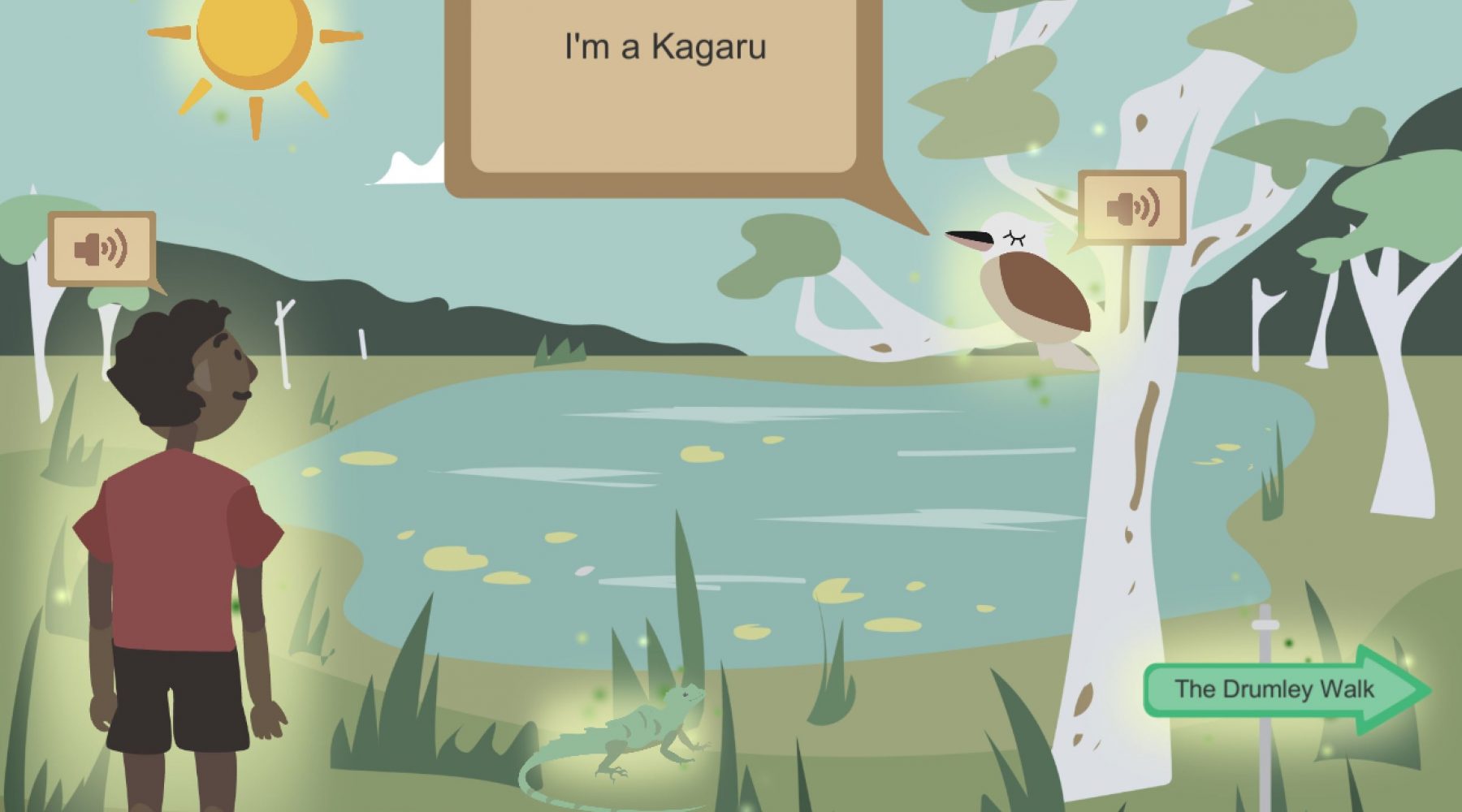Games designers to preserve culture of Yugambeh people

Games design students from Queensland’s Griffith University are using cutting-edge technology to keep local Indigenous languages alive – designing a series of interactive games for the Yugambeh Museum, south of Brisbane.
The work of the designers will be of interest to the early childhood education and care (ECEC) sector as they continually seek to find creative ways to engage children in First Nations culture, and ensure that perspectives which reflect the culture are embedded in a meaningful way into programs and broader community connections.
Through the use of the games, the museum aims to preserve and promote the culture and language of the Yugambeh people, who are the traditional custodians of the land that stretches from Beaudesert to the Gold Coast and Scenic Rim.
The group of Bachelor of Games Design students designed two interactive games for the museum – a language game designed to educate visitors about local bird species and a traditional story narrated by Elder Ted Williams, both of which could be used by children from four years of age onward.
Bachelor of Games Design student Riley Hearn said “It was a great chance to explore these culturally significant stories through game play, and they gave us a lot of creative freedom.”
The project forms part of what course leader Dr Tim Marsh describes as ‘serious games’, which blur the line between filmmaking and games design.
“Serious games have the potential to alter behaviour, raise awareness, and affect real change,” he said.
“This is about broadening the audience and providing a deeper experience – these are really games for non-gamers. The technological and artistic innovation in serious games and gamification is creating new ways to play, interact and experience. Essentially, they are games with purpose.”
Yugambeh Museum Director Rory O’Connor said the project was an important part of the organisation’s quest to revive language and share stories.
“These games are a useful tool to make our language and stories accessible to a wider audience, and engage visitors who are used to accessing information through tablets and smartphones.” he said.
To learn more about the project, please see here.
Popular

Quality
Practice
Provider
Research
Workforce
Honouring the quiet magic of early childhood
2025-07-11 09:15:00
by Fiona Alston

Practice
Provider
Quality
Research
Workforce
New activity booklet supports everyday conversations to keep children safe
2025-07-10 09:00:16
by Fiona Alston

Quality
Practice
Provider
Workforce
Reclaiming Joy: Why connection, curiosity and care still matter in early childhood education
2025-07-09 10:00:07
by Fiona Alston












